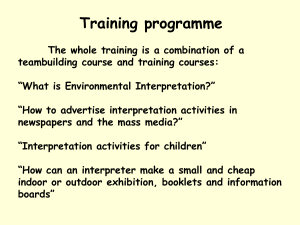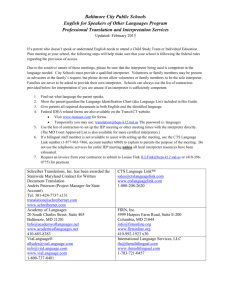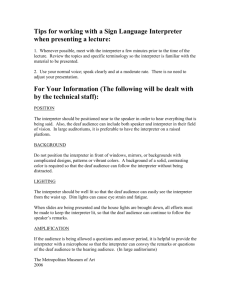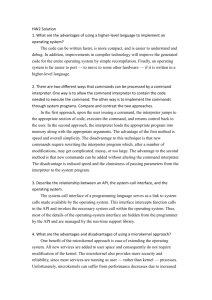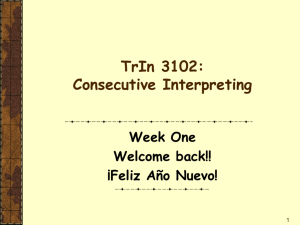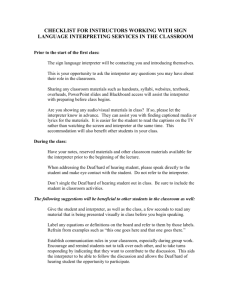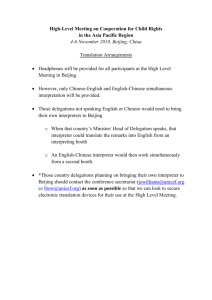general remarks to interpreting
advertisement
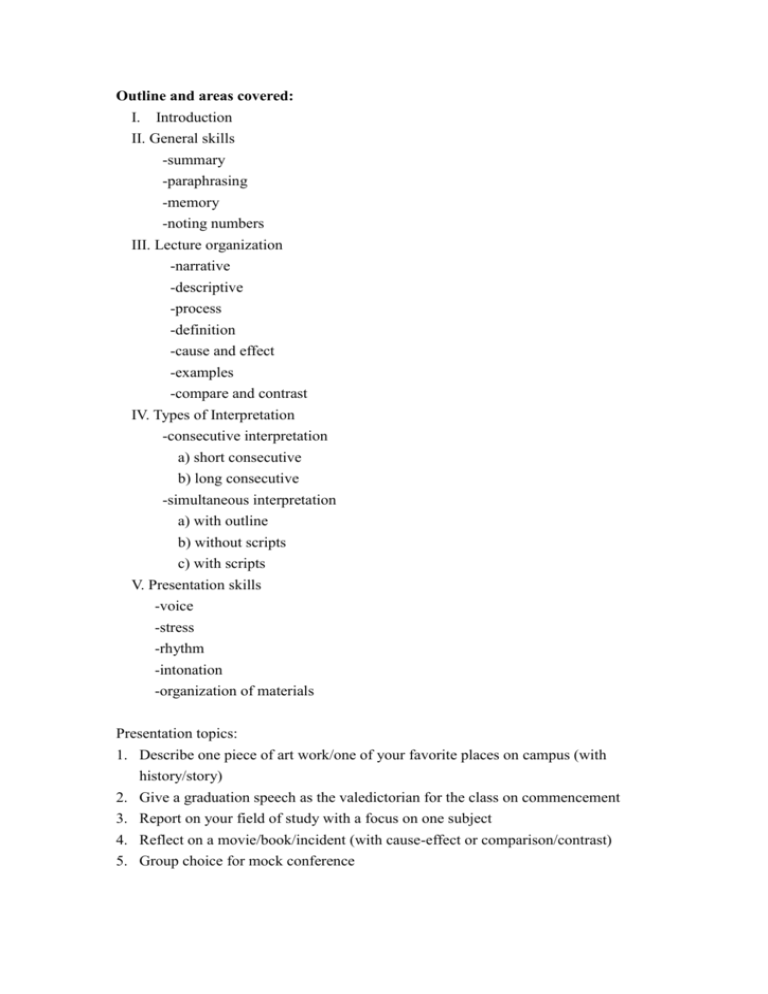
Outline and areas covered: I. Introduction II. General skills -summary -paraphrasing -memory -noting numbers III. Lecture organization -narrative -descriptive -process -definition -cause and effect -examples -compare and contrast IV. Types of Interpretation -consecutive interpretation a) short consecutive b) long consecutive -simultaneous interpretation a) with outline b) without scripts c) with scripts V. Presentation skills -voice -stress -rhythm -intonation -organization of materials Presentation topics: 1. Describe one piece of art work/one of your favorite places on campus (with history/story) 2. Give a graduation speech as the valedictorian for the class on commencement 3. Report on your field of study with a focus on one subject 4. Reflect on a movie/book/incident (with cause-effect or comparison/contrast) 5. Group choice for mock conference Form a group of four and each one has a role to play in the group. Function and role of each student in the group: 1. speaker: preparing a speech 2. interpreter: working as a liaison/interpreter for the group 3. evaluator: evaluating and assessing the performance of the speaker and interpreter (hand out your observation to the group members) 4. note-taker/observer: observing the performance of the whole class as a whole, the best speaker or interpreter of the week (hand out the observation sheet to the speaker or interpreter in question) Notes on student delivery: 1. pre-conference meeting between speaker and interpreter 2. student delivery (speaker and interpreter) 3. post-conference meeting between speaker, interpreter and evaluator, discussing the result of interpretation or delivery, feedback to speakers and interpreters 4. evaluator speaks on the result of their discussion: points for improvements etc. (use evaluation sheet below as a point of departure for discussion.) Assignments: 1. Speech delivery: Each student will deliver 3-5 speeches in the semester—three individual speeches and two group speech. Each speech varies from 5-10 minutes long. Requirements for speeches vary: one has to have an outline, one in full script, and one with notes only. 2. Terminology: for group speeches, terminology list should be prepared and given to the class. 3. Each group member takes turns to perform different roles and shares the reflections with others. Techniques to learn and things important in interpretation 1. Good practice 2. 3. 4. 5. Good preparation (communication with speakers) oral not written (relying on spoken words not written texts) terminology background information 6. organization 7. comprehension QUALITY OF AN INTERPRETER 反應快 語言熟習度高 專業勇氣 集中力 抗壓力 背景知識 理解力高 表達能力好 組織能力 清晰度 流暢度 好奇心 廣泛涉獵 會社交 合群
